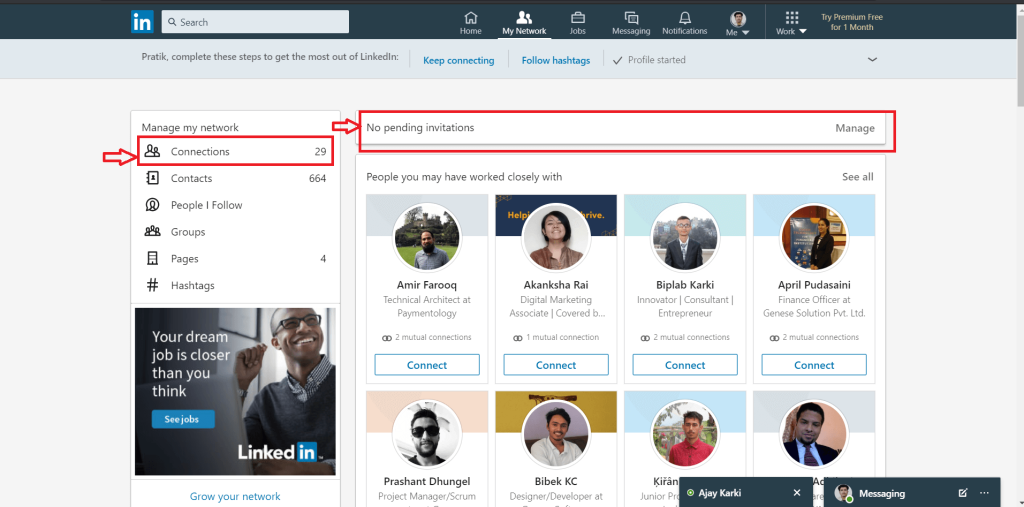There’s Really Only One Way to Land a New Job in Today’s Market

You’ve probably heard it a hundred times: networking is essential for your career. But when you’re already juggling a full-time job, networking can feel like just another task you don’t have time for. So you might toss a few likes on LinkedIn and call it a day.
That probably won’t cut it anymore.
The leverage that many workers enjoyed during the pandemic hiring surge is fading. Now, job seekers are finding that getting hired takes more effort — and more connection. As artificial intelligence reshapes roles and economic uncertainty tempers hiring, employers are becoming more selective.
That’s why networking is starting to resemble something like going to the gym or eating healthy — a habit you need to build before it becomes urgent.
Ivan Misner, founder of a global referral-based networking organization, says that networking isn’t about quick wins. “It’s more like farming than hunting. It’s about building relationships before you need them,” he explains. In other words, don’t wait until you’re jobless to start reaching out.
He compares it to planting a tree: the best time was years ago, but the second-best time is today.
The Favor Economy Is Real
We’re all bombarded with information daily, and that makes genuine relationships stand out. What still captures people’s attention is when someone they care about makes an ask — even indirectly. Often, job opportunities come not from close friends, but from friends of friends.
This concept is known as the “favor economy,” where you help someone you barely know simply because they’re connected to someone you do. In a world where automation is expanding and employers are cautious about hiring, old-school relationship building becomes even more essential.
The people who land jobs aren’t necessarily the ones with the flashiest résumés — they’re the ones who have someone behind the scenes willing to speak up for them.
Go Beyond the Scroll
One of the biggest mistakes people make is assuming social media interactions count as networking. Liking posts or firing off a mass message feels productive, but it rarely leads to meaningful opportunities.
Instead, the goal should be to create small, personal touchpoints over time. It could be a quick check-in text, sharing a helpful article, or just letting someone know they crossed your mind. These kinds of thoughtful gestures can go a long way in keeping you top of mind — without asking for anything in return.
And when you do want to reach out with a request, keep it small and specific, especially if the relationship is new or there’s a power dynamic. Rather than piling on requests — a meeting, a referral, a recommendation — think about what’s reasonable and impactful. One clear, appropriate ask is much more likely to get a positive response.
Stand Out in the Pile
With every job opening drawing in countless résumés, hiring managers are relying more on internal recommendations and personal connections to narrow the field.
Sometimes, it’s as simple as someone on the inside saying, “Hey, take a look at this person — I trust them.” That kind of advocacy carries weight, and it can bump a candidate to the front of the line.
The truth is, it’s hard to stand out if you’re just a name on a document. Hiring managers want to feel some kind of connection — even if it’s secondhand.
To be remembered, you have to be seen and heard. That means showing up, checking in, and keeping relationships warm long before you send in your résumé.
In today’s job market, the strongest candidates aren’t necessarily the ones with the most credentials. They’re the ones who’ve built a network ready to speak up on their behalf.

